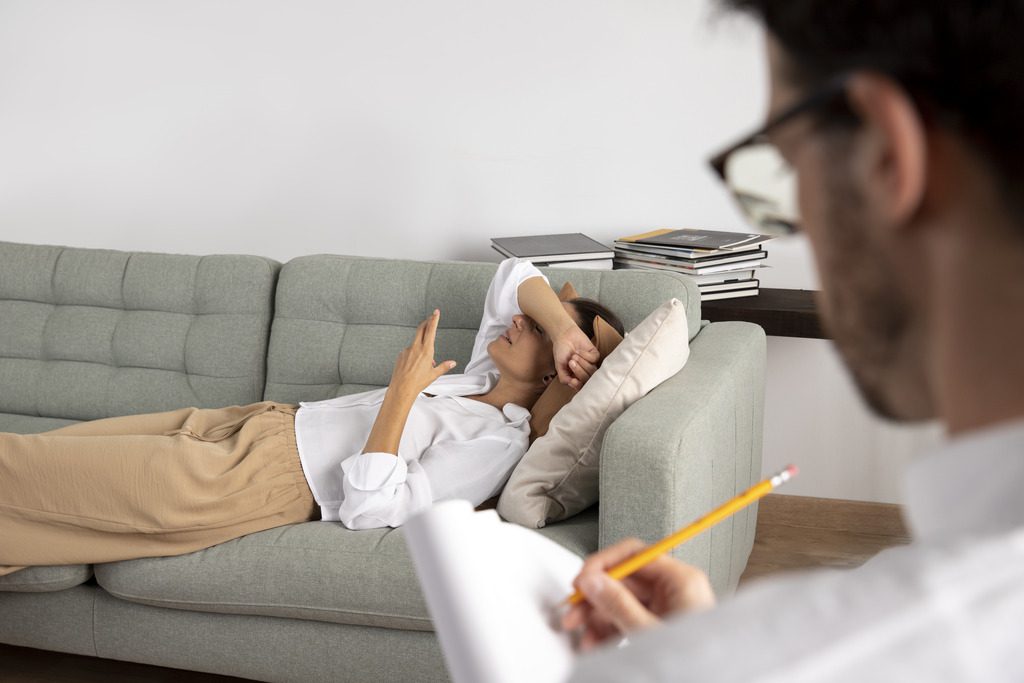Anxiety and depression are two of the most common mental health disorders. Often, they can co-occur, causing complicated emotional suffering in individuals. Although there are some similarities between the two illnesses regarding signs and symptoms, it is important to be able to differentiate one from another so that the appropriate diagnosis can be made and holistic therapy can be applied effectively. This post will delve deeper into providing you with information about the treatment of depression & anxiety while giving you tips to help you heal.
Understanding Depression: The Low Tide of the Soul
Depression is not an occasional low mood; it’s a state characterized by prolonged sadness, disinterest, and pessimism that severely affects people’s daily lives. These are some of the most common symptoms:
- Feeling blue or depressed all day almost every day
- Losing interest in activities once found enjoyable
- Eating much more or much less than usual (weight gain or loss)
- Difficulty sleeping (insomnia) or sleeping too much
- Being restless or slowed down
- Trouble concentrating or making a decision, forgetfulness
- Low energy level, tiredness
- Excessive guilt feelings, worthlessness
Anxiety: When Worry Takes the Wheel
Anxiety occurs when an individual overthinks and becomes afraid to do daily activities. Emotional distress is typically accompanied by physical symptoms such as a fast pulse rate, difficulty breathing, and even muscle tension. Here are some of the common signs;
- Feeling jumpy or restless
- Easily worn out
- Having trouble paying attention or forgetting things easily
- Being crabby
- Clenching muscles
- Trouble sleeping (falling/staying asleep)
- Feeling very busy or not being able to relax
- An intense fear that something bad will happen
- Many sudden panic attacks
The Overlapping Symphony: Depression and Anxiety Together
Diagnosis: Tying up the Knots
To identify depression and anxiety, mental health professionals may conduct a comprehensive assessment that may consist of:
- An extensive talk about symptoms, thoughts, and emotions.
- Psychological tests were created to assess mood, cognitive function, and anxiety levels.
- Physical examination is done to eliminate any physical illness that may be causing these symptoms.
Integrated Treatment: A Person-Centered Method
Thankfully, both depression and anxiety can be effectively treated. Integrated treatment plans employ multiple therapies to meet each person’s individual needs. These are some popular options for treatment of depression & anxiety:
Psychotherapy:
- Cognitive Behavioral Therapy (CBT): The objective of CBT is to identify negative thoughts that result in depression and anxiety.
- Interpersonal Therapy (IPT): IPT focuses on improving communication skills and relationships as a way of dealing with the treatment of depression & anxiety.
- Acceptance and Commitment Therapy (ACT): ACT teaches people how to live a more meaningful life by accepting difficult emotions instead of trying to eliminate them.
Medication:
- Antidepressants: These drugs can assist in stabilizing mood by regulating brain chemicals.
- Anti-anxiety medications: Such drugs can be used to control anxiety-related panic attacks.
Lifestyle Changes:
- Regular exercise: According to research, exercising is effective in relieving depression and anxiety.
- Good sleep habits: Sleep is necessary for overall health and should be taken seriously.
- Mindfulness practices: Mindfulness meditation or other techniques are useful for controlling emotions and managing stress.
- Healthy diet: A happy life with high energy levels can be achieved by eating well-balanced fruits, vegetables, and whole grains.
Schedule an appointment online to learn more about the treatment of depression & anxiety.
Frequently Asked Questions
Q 1. If I’m feeling depressed and anxious, should I go to the doctor?
Yes, medical professionals can diagnose accurately and create a custom treatment plan to address both conditions accordingly. Don’t be afraid to seek help—it shows strength, not weakness.
Q 2. How can I help myself deal with depression as well as anxiety?
Below are some self-help techniques for dealing with the treatment of depression & anxiety:
- Relaxation methods: These could include deep breathing exercises, progressive muscle relaxation, or even yoga for stress management.
- Stay connected with loved ones: Social support is important for mental health. Try reaching out to friends, family members, or support groups who can be there for you during tough times.
- Fun activities: We must take care of ourselves by engaging in hobbies and other habits that release endorphins.
- Avoid drinking too much alcohol or caffeinated beverages like coffee/tea if symptoms already exist. Beverages tend to exacerbate symptoms instead of relieving any discomfort associated with those conditions.
- Gratefulness practice: Practicing being grateful is crucial to moving forward with a positive outlook on life.

